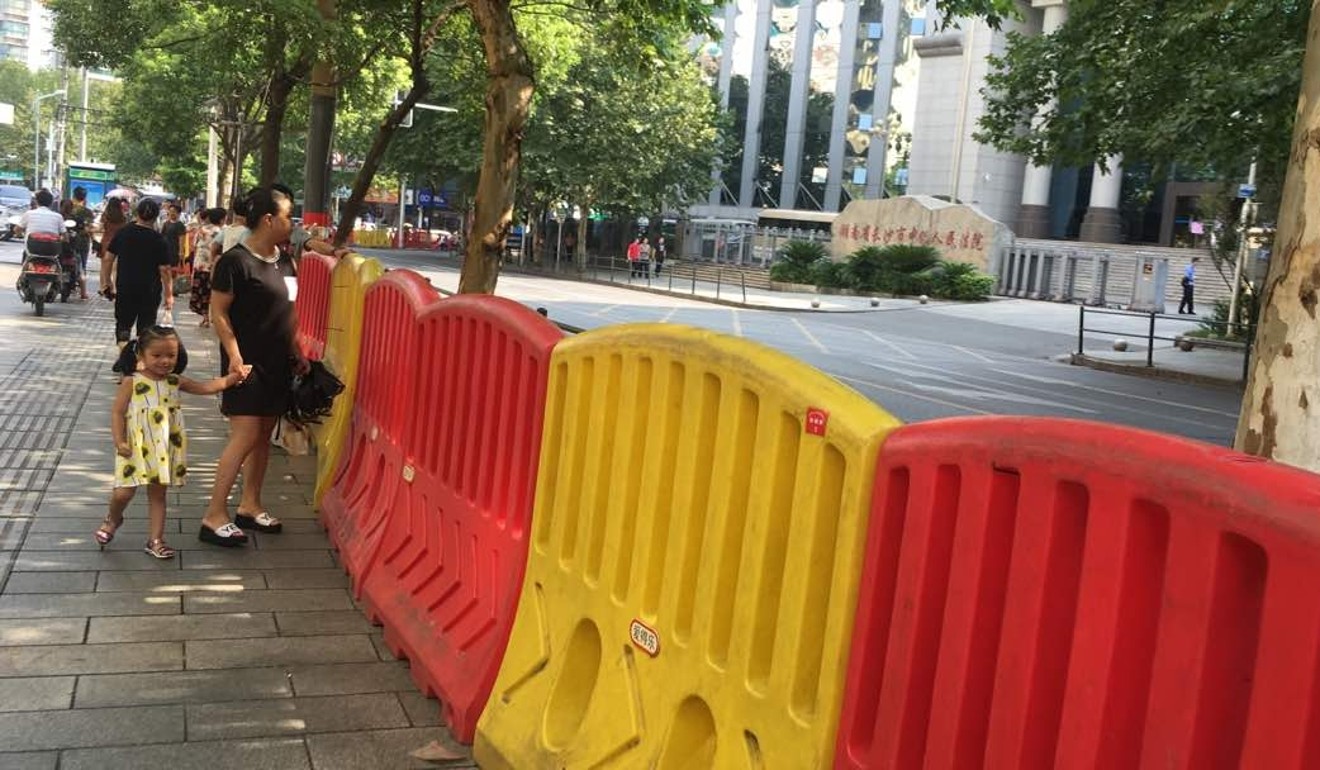
Chinese rights activist pleads guilty to inciting subversion
Fellow campaigners say Jiang Tianyong’s confession in court was forced and that he has been denied access in custody to his own lawyers for nearly a year
Chinese civil rights advocate Jiang Tianyong pleaded guilty on Tuesday to inciting state subversion.
Jiang admitted the offence at a hearing in Changsha in Hunan province, with details released on the court’s social media account.
Jiang is a prominent former rights lawyer whose clients have included the blind legal activist Chen Guangcheng and members of the spiritual movement Falun Gong, which is banned in mainland China.
He is the latest activist to face legal action after the sweeping “709 crackdown” on civil rights campaigners on the mainland initiated two years ago.
Jiang, 46, appeared in the small courtroom seating about 20 people on Tuesday morning.
Dressed in a white shirt and black trousers – escorted by two policemen – he read from a prepared statement.
He is due to be sentenced at a later date.
Jiang apologised for his actions and appealed for a lenient sentence, but fellow activists said it was a staged performance and his confession was forced.
Jiang told the court: “I know my actions were wrong and broke the law which I regret.
“I am willing to confess and submit to the law. I’m ashamed for damaging the national image and apologise for hurting the feelings of judicial officials. Whether I will be forgiven or not, I’m very sorry.”
Jiang’s supporters who gathered outside the court were barred from attending the hearing. Road blocks were also set up in the area around the court.
Jiang’s formal career as a lawyer ended after his legal licence was revoked in 2009, but he kept up his civil rights activism.
He was detained by Hunan provincial police last November after he tried to visit the lawyer Xie Yang in custody.
Jiang was originally accused of the more serious offence of “state subversion”, which can carry a life sentence, but the charge was later reduced.
The crime of inciting subversion could be given a jail term of above five years, while subversion can face a maximum of life sentence.

Prosecutors said Jiang’s life had been infiltrated by “hostile foreign forces”, which drove him to publicise opinions attacking the government, to conspire with foreign media and diplomats; and to rally activists to incite state subversion.
Jiang was also accused of attending a handful of overseas training sessions on “Western constitutional ideology” and seeking foreign funding to work on more than 10 politically sensitive cases.
Prosecutors said Jiang had used social media, including Twitter, to criticise China. His social media accounts were said to have 37,000 followers and contained more than 200 post deemed as attacking the Chinese government.
Prosecutors also accused Jiang of accepting 148 interviews with media outlets outside mainland China in the past few years and 70 were deemed to incite subversion. Jiang was also said to have fabricated allegations that Xie Yang had been tortured in custody.
He told the court on Tuesday his aim was to convince the public to feel his level of discontent to overthrow the state.
Zhang Lei and Chen Jinxue, two lawyers appointed by Jiang’s father, were not notified of the hearing. They were replaced by two Hunan-based lawyers appointed by the authorities. Activists caught in the “709 crackdown” are regularly told they have to use government lawyers and not their own lawyers.
Zhang tried to visit Jiang three times in custody, but failed.
“Jiang is respected because he stands firm on defending human rights in a nation with no regard to human rights,” Zhang said.
William Nee, China researcher at the pressure group Amnesty International, called on the Chinese authorities to put an end to such “sham trials”.
“What is arguably the most concerning is that Jiang Tianyong has not been allowed to meet with his lawyer since he was detained and many lawyers and activists involved in this crackdown have shared their horrific accounts of being tortured,” Nee said.
Jin Bianling, Jiang’s exiled wife in the United States, called the trial a “staged script”.
“From the day I married him to now, I have always trusted him,” she said. “The charges they laid against him only allowed me to know Jiang Tianyong better, for he is one who helps the disadvantaged and stands for the protection of rights.”


